Description
Clay stucco is a thin finishing plaster and rich in shades, which allows you to create crystal-gloss or silky-matte surfaces. According to the technique, the finished result is glossy or a versatile, beautiful pattern. Clay stucco is suitable for use on many different surfaces in dry interiors.
Clay stucco is a 100% natural finishing plaster with a small ecological footprint, being an eye-catching decorative element in the interior. Inspired by thousands of years of Japanese masters’ techniques and materials, this modern plaster made in southern Estonia is like a work of art, whose glossy pattern creates a luxurious atmosphere with just a few thin layers and mixing with colored soils allows you to create an endless choice of shades. The surface treated with the trowel is strong as stone and soft as silk.
Clay stucco is ideal for dry interiors for decorative finishing of walls, ceilings as well as stoves, fireplaces, and ovens. UKU clay stucco is easy to install and thanks to its smooth glossy surface, it is very easy to maintain.
Suitable substrates for direct installation plaster (clay plaster, lime plaster, mineral plasters)
Suitable substrates that are prepared or plastered: gypsum board, gypsum fiberboard (Fermacell), wooden fibreboard (windbreak, Steico, Skano), stone, concrete.
Color: white, snow white, orange, mustard, gray, lilac, yellow, red, blue, beige, caramel, green, black
Grain size: 0–0,2 mm
Consumption: 400–600 g/m2
Packages: 1 kg bucket, 5 kg bucket, 10 kg bucket
Substrate
The substrate must be dry, absorbent, and free of dust, paints, and lubricants (oils, greases, etc.). All surface irregularities/bumps appear darker during surface finishing, so the final finish’s uniform tonality depends on the substrate. The more structural the substrate, the higher the material consumption per square meter. The substrate should not be shiny and slippery (old paint, ceramic tile, glass, metal, etc.)
Conditions
The temperature of the substrate and the ambient air should be higher than 5 ° C. We recommend moistening the substrate just before installation.
Preparation
To 1kg of dry mixture add 0,8-1l of pure water and mix thoroughly until preferred consistency. Add ¾ water at the beginning and mix until smooth (make sure there are no lumps) and then gradually add the rest of the water. It is best to prepare the mixture the day before plastering, with a minimum of 1 hour before use.
Application
Apply the first leveling layer in different directions, observing the resulting pattern. Do not polish the first layer(s), gently peel off higher areas to level the surface and leave to harden. The application direction in the first layer and the resulting pattern also shine through in subsequent layers. Leave to stand for at least an hour or until the substrate has visibly dried. Once the undercoat has dried light and matte, the following coat can be applied. In the final layers, the mixture is applied as thinly as possible in different directional movements, observing and spreading the application pattern throughout the surface. When applying the final layers, it is necessary to apply more pressure to the trowel. Immediately after completion, polish the surface entirely with the Venetian trowel. Always start with smaller surfaces to learn the technique. If necessary, make a sample board!
Finishing
To achieve a high gloss, the surface can be waxed with carnauba wax and polished with a soft, lint-free cloth when dry. It also adds to the surface wear resistance.
Maintenance
Spot repairs can be made to possible surface damage. For this, it is recommended to keep the finishing material from the same batch in storage. However, the repaired spot will most likely remain slightly visible.
Consumption
Depending on the evenness of the substrate and the number of layers 0,4-0,6 kg/m²
1 kg bucket Water: 0,75-0,85l Coverage: 1,6-2,5m²
5 kg bucket Water: 3,75-4,25l Coverage: 8-12,5m²
10 kg bucket Water: 7,5-8,5l Coverage: 16-25m²
Safety
Avoid inhalation of dust and contact with eyes. In case of contact with eyes, rinse immediately with saline.
Preservation
Store in a dry place. Shelf life 2 years from the date of manufacture. The date of manufacture is based on the packaging. There may be slight differences in color between batches.


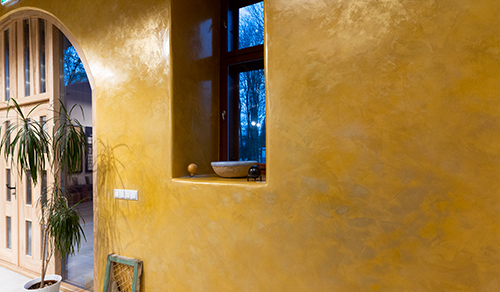
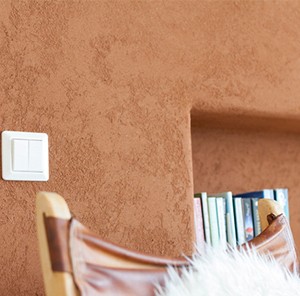
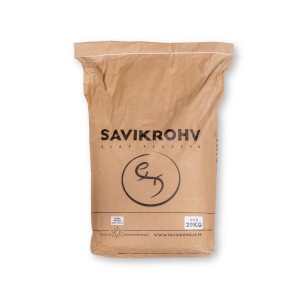
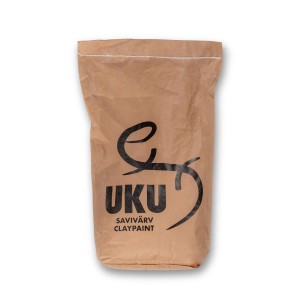
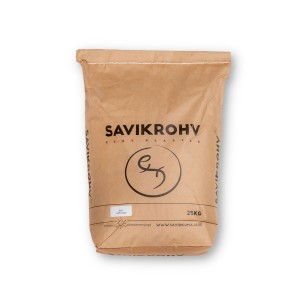




Reviews
There are no reviews yet.